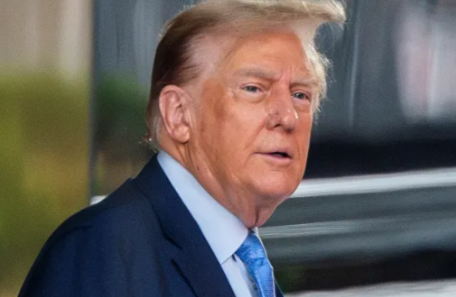Trump Prosecutors Get Terrible News

According to legal professor Jonathan Turley, who leans conservative, the prosecution’s case against former President Donald Trump is not winning at the Supreme Court.
The nine justices heard arguments on Thursday for and against broadening presidential immunity. Trump contended that this immunity extended to activities made both formally and informally while he was president and after he departed in early 2021.
Many of Trump’s behaviors, according to his opponents, are outside the bounds of protected conduct, and the court need to declare that Trump is liable to punishment just like any other citizen of the United States.
Nevertheless, Turley notes that because federal prosecutors had effectively told the court, “Trust us, we’re the government,” they were in a worse position following the hearings.
From Turley:
Ambiguity defeats the purpose of such immunity. So does a test that turns on the motivation of an official act.
The special counsel insists, for example, Trump was acting for his personal interest in challenging certification and raising electoral fraud since he was the other candidate.
But what if he wasn’t on the ballot — would it have been an official function to raise such concerns for other candidates?
When pressed on the line between official and nonofficial conduct, the special counsel just dismissed such concerns and said Trump was clearly acting as an office-seeker not an officeholder.
Likewise, the special counsel argued the protection for presidents must rest with the good motivations and judgment of prosecutors.
It was effectively a “Trust us, we’re the government” assurance. Justice Samuel Alito and others questioned whether such reliance is well placed after decades of prosecutors’ proven abuses.
As evidence that left-leaning prosecutors are trying to make an example of Trump, supporters of the former president point to years of politically motivated lawsuits and investigations, both civil and criminal. Manhattan District Attorney Alvin Bragg, according to Turley, is the former president’s “best attorney” because he “very personification of the danger immunity is meant to avoid.”
“If the justices want insight into the implications of denying any immunity, they just need to look north to New York City. The ongoing prosecution of Trump is legally absurd but has resulted in the leading presidential candidate not only being gagged but prevented from campaigning,” he goes on.
Though the boundary is still, at best, hazy, Turley and other legal watchers think the Supreme Court seems willing to try to find a middle ground between catch-all prosecution and blanket immunity.
“[C]ould President Barack Obama be prosecuted for ordering the killing of a citizen by drone attack and then killing his son in a second drone attack?” Turley asks.
The questioning on Thursday clearly hinted at speculation regarding the guilt of previous presidents.
“What about President Franklin D. Roosevelt’s decision to intern Japanese Americans during World War II? Could [he] in fact have been charged under 18 U.S.C. 241 conspiracy against civil rights today?” Justice Samuel Alito posed the question to U.S. attorney Michael Dreeben.
“Yes,” Dreeben replied if domestic internment based on race occurred today, “given this court’s decision in … Trump v. Hawaii.”
Justice Jackson also questioned why, if immunity is enjoyed, was former President Richard Nixon pardoned for alleged crimes in office.
“What was up with the pardon for President Nixon? I think that if everybody thought that presidents couldn’t be prosecuted, then what was that about?” she asked defense attorney D. John Sauer.
“Well, he was under investigation for both private and public conduct at the time,” he replied.
The court could overturn both of the federal trials against Trump and postpone any decision until well after the November election if it decides—as is expected—that additional proceedings by a lower court are necessary.